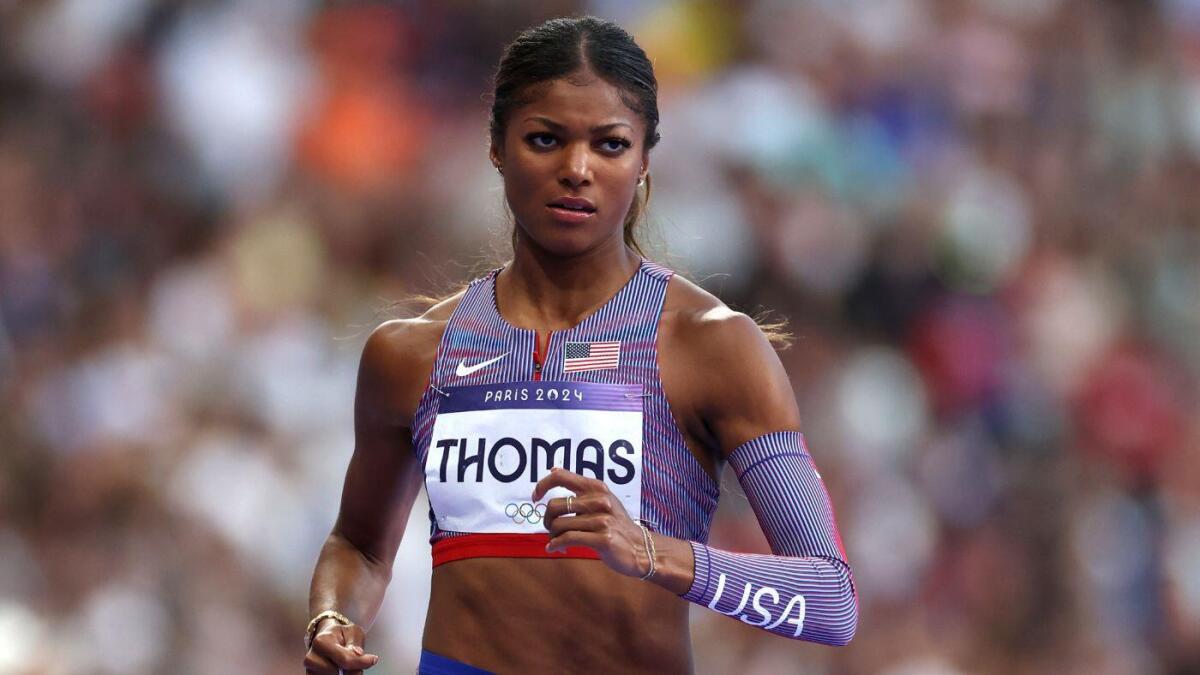Gabby Thomas’ Encounter with Harassment: Unveiling Athlete Vulnerability in the Age of Sports Betting
Introduction
Gabby Thomas, an illustrious American sprinter and three-time Olympic gold medalist, recently revealed a distressing episode of harassment during the Grand Slam Track meet in Philadelphia. This incident exposes not only the personal challenges faced by elite athletes but also broader concerns around safety and the influence of sports betting in today’s athletic environment. It underscores the urgent need to address the complex interplay between athlete security, fan behavior, and gambling culture.
The Incident: More Than Just a Disturbance
During the Philadelphia meet, Thomas endured verbal abuse and physical stalking by a sports bettor who shouted personal insults and boasted about winning multi-leg bets linked to her performance. The harassment, captured on video and shared widely, magnified the incident’s severity and ignited widespread public discourse.
Thomas’ decision to denounce the behavior on social media, calling out not only the perpetrator but also those who enabled such conduct online, highlights a new form of athlete advocacy. Her articulation of frustration as “gross” confronts the toxic environment that can flourish around sports figures. The swift response from the Grand Slam Track organizers, who initiated an investigation, reflects growing recognition of athlete vulnerabilities beyond the competition itself.
Athlete Safety Under Pressure: A Deeper Issue
Thomas’ experience is emblematic of a deeper, persistent problem. Her prior accounts of stalking at airports and other venues reveal a pattern of harassment blending public admiration with unsettling obsession. This phenomenon transcends mere fandom into invasive and potentially harmful behavior.
The influence of sports betting intensifies these challenges. Bettors engaging in harassment to assert dominance or disrupt performance illustrate how gambling stakes can distort sportsmanship and fan interactions. Female athletes across disciplines have echoed concerns about how betting cultures contribute to hostile environments, increasing mental and emotional strain.
Rapid growth in sports betting raises questions about balancing fan engagement with the risks of fostering unhealthy fixations. Without safeguards, athletes risk being targets of aggressive behavior fueled by gambling outcomes, threatening their physical safety and psychological well-being.
Gabby Thomas: Athlete as Advocate
Thomas embodies more than athletic excellence; her academic accomplishments and public health expertise foster a unique platform for advocacy. She uses her social media presence to highlight athlete welfare issues, challenging silence around harassment and demanding accountability.
Her openness about stalking and harassment pushes for systemic change, emphasizing institutional responsibility to protect athletes. Thomas’ advocacy encourages a shift from viewing athletes solely as performers to recognizing their need for respect, privacy, and security.
Institutional and Community Imperatives
In the aftermath of the incident, Grand Slam Track’s investigative actions signal positive steps but must evolve into comprehensive strategies, including:
– Deployment of enhanced security and vigilant monitoring at events.
– Implementation of strict, enforceable codes of conduct with clear penalties for misconduct.
– Collaboration with digital platforms to mitigate online harassment linked to physical events.
– Educational outreach focusing on the intersection of sports betting, fan behavior, and athlete safety.
Fostering a culture of respect within the sports community demands participation from fans, bettors, organizers, and athletes alike. Protecting athletes’ dignity aligns with sustaining the integrity and spirit of competitive sports.
Conclusion: Toward a Safer Sporting Future
Gabby Thomas’ ordeal at the Grand Slam Track meet exposes the fragile boundary between celebration and violation in modern sports. Her courageous stand against harassment invites a necessary reckoning around athlete safety amid the rising tide of sports betting and digital fan engagement.
This moment calls for concerted commitment to safeguarding athletes—ensuring that athletic arenas remain sanctuaries for excellence, free from intimidation and abuse. Elevating the conversation from individual incidents to structural reforms offers hope for a more respectful, secure sports landscape that honors both achievement and humanity.

